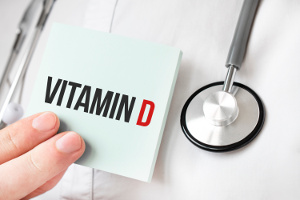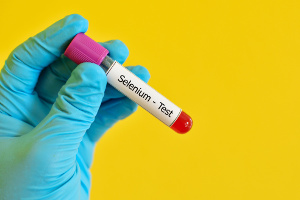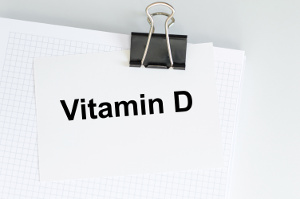afterLoad (456.47KB) (474μs)
afterInitialise (1.27MB) (19.33ms)
afterRoute (857.48KB) (6.98ms)
beforeRenderComponent com_content (37.57KB) (296μs)
Before Access::preloadComponents (all components) (207.06KB) (3.22ms)
After Access::preloadComponents (all components) (98.07KB) (1.42ms)
Before Access::preloadPermissions (com_content) (1.6KB) (17μs)
After Access::preloadPermissions (com_content) (3.24MB) (8.47ms)
Before Access::getAssetRules (id:62 name:com_content.category.20) (130.65KB) (92μs)
After Access::getAssetRules (id:62 name:com_content.category.20) (7.38KB) (50μs)
Before Access::getAssetRules (id:8 name:com_content) (69.63KB) (25.66ms)
After Access::getAssetRules (id:8 name:com_content) (6.17KB) (25μs)
afterRenderComponent com_content (1.44MB) (115ms)
afterDispatch (41.85KB) (4.78ms)
beforeRenderRawModule mod_articles_category (READ MORE...) (350.89KB) (8.76ms)
afterRenderRawModule mod_articles_category (READ MORE...) (85.5KB) (66.09ms)
beforeRenderRawModule mod_tags_popular (Search) (4.81KB) (275μs)
afterRenderRawModule mod_tags_popular (Search) (70.1KB) (45.73ms)
beforeRenderRawModule mod_custom (BOOST YOUR IMMUNE DEFENSE) (960B) (38μs)
afterRenderRawModule mod_custom (BOOST YOUR IMMUNE DEFENSE) (4.2KB) (202μs)
beforeRenderRawModule mod_custom (Are you taking supplements) (736B) (14μs)
afterRenderRawModule mod_custom (Are you taking supplements) (1.03KB) (25μs)
beforeRenderRawModule mod_articles_category (Get additionel and more detailed knowledge about) (8.41KB) (21μs)
afterRenderRawModule mod_articles_category (Get additionel and more detailed knowledge about) (44.77KB) (4.88ms)
beforeRenderRawModule mod_custom (Antiaging) (6.97KB) (27μs)
afterRenderRawModule mod_custom (Antiaging) (1KB) (39μs)
beforeRenderRawModule mod_custom (Exercise) (720B) (11μs)
afterRenderRawModule mod_custom (Exercise) (1.02KB) (22μs)
beforeRenderRawModule mod_custom (Check this before you buy a Q10 product) (752B) (10μs)
afterRenderRawModule mod_custom (Check this before you buy a Q10 product) (944B) (19μs)
beforeRenderModule mod_articles_category (READ MORE...) (267.89KB) (4.85ms)
afterRenderModule mod_articles_category (READ MORE...) (1.25KB) (68μs)
beforeRenderModule mod_tags_popular (Search) (5.17KB) (16μs)
afterRenderModule mod_tags_popular (Search) (2.52KB) (27μs)
beforeRenderModule mod_custom (BOOST YOUR IMMUNE DEFENSE) (1.31KB) (13μs)
afterRenderModule mod_custom (BOOST YOUR IMMUNE DEFENSE) (1.28KB) (22μs)
beforeRenderModule mod_custom (Are you taking supplements) (352B) (10μs)
afterRenderModule mod_custom (Are you taking supplements) (1.28KB) (21μs)
beforeRenderModule mod_articles_category (Get additionel and more detailed knowledge about) (8.03KB) (17μs)
afterRenderModule mod_articles_category (Get additionel and more detailed knowledge about) (1.31KB) (21μs)
beforeRenderModule mod_custom (Antiaging) (7.33KB) (9μs)
afterRenderModule mod_custom (Antiaging) (1.27KB) (20μs)
beforeRenderModule mod_custom (Exercise) (336B) (8μs)
afterRenderModule mod_custom (Exercise) (1.25KB) (19μs)
beforeRenderModule mod_custom (Check this before you buy a Q10 product) (352B) (9μs)
afterRenderModule mod_custom (Check this before you buy a Q10 product) (1.28KB) (19μs)
beforeRenderRawModule mod_menu (Main menu-US) (28.53KB) (509μs)
afterRenderRawModule mod_menu (Main menu-US) (157.05KB) (5.11ms)
beforeRenderModule mod_menu (Main menu-US) (720B) (6μs)
afterRenderModule mod_menu (Main menu-US) (4.36KB) (66μs)
beforeRenderRawModule mod_languages (Sprogskift) (3.44KB) (20μs)
afterRenderRawModule mod_languages (Sprogskift) (29.7KB) (1.56ms)
beforeRenderModule mod_languages (Sprogskift) (720B) (5μs)
afterRenderModule mod_languages (Sprogskift) (5.31KB) (22μs)
beforeRenderRawModule mod_finder () (6.34KB) (11μs)
afterRenderRawModule mod_finder () (154.54KB) (3.8ms)
beforeRenderModule mod_finder () (704B) (5μs)
afterRenderModule mod_finder () (3.29KB) (33μs)
beforeRenderRawModule mod_custom () (6.62KB) (141μs)
afterRenderRawModule mod_custom () (26.98KB) (1.78ms)
beforeRenderModule mod_custom () (704B) (6μs)
afterRenderModule mod_custom () (1.23KB) (51μs)
beforeRenderRawModule mod_menu (Main menu-US) (5.07KB) (104μs)
afterRenderRawModule mod_menu (Main menu-US) (5.8KB) (1.41ms)
beforeRenderModule mod_menu (Main menu-US) (720B) (4μs)
afterRenderModule mod_menu (Main menu-US) (3.75KB) (49μs)
beforeRenderRawModule mod_languages (Sprogskift Mobil) (912B) (19μs)
afterRenderRawModule mod_languages (Sprogskift Mobil) (3.89KB) (689μs)
beforeRenderModule mod_languages (Sprogskift Mobil) (720B) (3μs)
afterRenderModule mod_languages (Sprogskift Mobil) (1.27KB) (31μs)
beforeRenderRawModule mod_finder () (2.3KB) (10μs)
afterRenderRawModule mod_finder () (5.97KB) (1.48ms)
beforeRenderModule mod_finder () (704B) (5μs)
afterRenderModule mod_finder () (1.23KB) (43μs)
beforeRenderRawModule mod_custom () (8.66KB) (180μs)
afterRenderRawModule mod_custom () (904B) (138μs)
beforeRenderModule mod_custom () (704B) (3μs)
afterRenderModule mod_custom () (2.43KB) (24μs)
beforeRenderRawModule mod_custom () (688B) (82μs)
afterRenderRawModule mod_custom () (896B) (100μs)
beforeRenderModule mod_custom () (704B) (2μs)
afterRenderModule mod_custom () (2.71KB) (20μs)
afterRender (180.9KB) (5.78ms)
| 1 x afterRenderComponent com_content (1.44MB) (33.71%) | 114.85ms |
| 1 x afterRenderRawModule mod_articles_category (READ MORE...) (85.5KB) (19.4%) | 66.09ms |
| 1 x afterRenderRawModule mod_tags_popular (Search) (70.1KB) (13.42%) | 45.73ms |
| 1 x Before Access::getAssetRules (id:8 name:com_content) (69.63KB) (7.53%) | 25.66ms |
| 1 x afterInitialise (1.27MB) (5.67%) | 19.33ms |
| 1 x beforeRenderRawModule mod_articles_category (READ MORE...) (350.89KB) (2.57%) | 8.76ms |
| 1 x After Access::preloadPermissions (com_content) (3.24MB) (2.49%) | 8.47ms |
| 1 x afterRoute (857.48KB) (2.05%) | 6.98ms |
| 1 x afterRender (180.9KB) (1.7%) | 5.78ms |
| 1 x afterRenderRawModule mod_menu (Main menu-US) (157.05KB) (1.5%) | 5.11ms |
| 1 x afterRenderRawModule mod_articles_category (Get additionel and more detailed knowledge about) (44.77KB) (1.43%) | 4.88ms |
| 1 x beforeRenderModule mod_articles_category (READ MORE...) (267.89KB) (1.42%) | 4.85ms |
| 1 x afterDispatch (41.85KB) (1.4%) | 4.78ms |
| 1 x afterRenderRawModule mod_finder () (154.54KB) (1.12%) | 3.80ms |
| 1 x Before Access::preloadComponents (all components) (207.06KB) (0.94%) | 3.22ms |
| 1 x afterRenderRawModule mod_custom () (26.98KB) (0.52%) | 1.78ms |
| 1 x afterRenderRawModule mod_languages (Sprogskift) (29.7KB) (0.46%) | 1.56ms |
| 1 x afterRenderRawModule mod_finder () (5.97KB) (0.43%) | 1.48ms |
| 1 x After Access::preloadComponents (all components) (98.07KB) (0.42%) | 1.42ms |
| 1 x afterRenderRawModule mod_menu (Main menu-US) (5.8KB) (0.41%) | 1.41ms |
| 1 x afterRenderRawModule mod_languages (Sprogskift Mobil) (3.89KB) (0.2%) | 689μs |
| 1 x beforeRenderRawModule mod_menu (Main menu-US) (28.53KB) (0.15%) | 509μs |
| 1 x afterLoad (456.47KB) (0.14%) | 474μs |
| 1 x beforeRenderComponent com_content (37.57KB) (0.09%) | 296μs |
| 1 x beforeRenderRawModule mod_tags_popular (Search) (4.81KB) (0.08%) | 275μs |
| 1 x afterRenderRawModule mod_custom (BOOST YOUR IMMUNE DEFENSE) (4.2KB) (0.06%) | 202μs |
| 1 x beforeRenderRawModule mod_custom () (8.66KB) (0.05%) | 180μs |
| 1 x beforeRenderRawModule mod_custom () (6.62KB) (0.04%) | 141μs |
| 1 x afterRenderRawModule mod_custom () (904B) (0.04%) | 138μs |
| 1 x beforeRenderRawModule mod_menu (Main menu-US) (5.07KB) (0.03%) | 104μs |
| 1 x afterRenderRawModule mod_custom () (896B) (0.03%) | 100μs |
| 1 x Before Access::getAssetRules (id:62 name:com_content.category.20) (130.65KB) (0.03%) | 92μs |
| 1 x beforeRenderRawModule mod_custom () (688B) (0.02%) | 82μs |
| 1 x afterRenderModule mod_articles_category (READ MORE...) (1.25KB) (0.02%) | 68μs |
| 1 x afterRenderModule mod_menu (Main menu-US) (4.36KB) (0.02%) | 66μs |
| 1 x afterRenderModule mod_custom () (1.23KB) (0.01%) | 51μs |
| 1 x After Access::getAssetRules (id:62 name:com_content.category.20) (7.38KB) (0.01%) | 50μs |
| 1 x afterRenderModule mod_menu (Main menu-US) (3.75KB) (0.01%) | 49μs |
| 1 x afterRenderModule mod_finder () (1.23KB) (0.01%) | 43μs |
| 1 x afterRenderRawModule mod_custom (Antiaging) (1KB) (0.01%) | 39μs |
| 1 x beforeRenderRawModule mod_custom (BOOST YOUR IMMUNE DEFENSE) (960B) (0.01%) | 38μs |
| 1 x afterRenderModule mod_finder () (3.29KB) (0.01%) | 33μs |
| 1 x afterRenderModule mod_languages (Sprogskift Mobil) (1.27KB) (0.01%) | 31μs |
| 1 x beforeRenderRawModule mod_custom (Antiaging) (6.97KB) (0.01%) | 27μs |
| 1 x afterRenderModule mod_tags_popular (Search) (2.52KB) (0.01%) | 27μs |
| 1 x After Access::getAssetRules (id:8 name:com_content) (6.17KB) (0.01%) | 25μs |
| 1 x afterRenderRawModule mod_custom (Are you taking supplements) (1.03KB) (0.01%) | 25μs |
| 1 x afterRenderModule mod_custom () (2.43KB) (0.01%) | 24μs |
| 1 x afterRenderRawModule mod_custom (Exercise) (1.02KB) (0.01%) | 22μs |
| 1 x afterRenderModule mod_custom (BOOST YOUR IMMUNE DEFENSE) (1.28KB) (0.01%) | 22μs |
| 1 x afterRenderModule mod_languages (Sprogskift) (5.31KB) (0.01%) | 22μs |
| 1 x beforeRenderRawModule mod_articles_category (Get additionel and more detailed knowledge about) (8.41KB) (0.01%) | 21μs |
| 1 x afterRenderModule mod_custom (Are you taking supplements) (1.28KB) (0.01%) | 21μs |
| 1 x afterRenderModule mod_articles_category (Get additionel and more detailed knowledge about) (1.31KB) (0.01%) | 21μs |
| 1 x afterRenderModule mod_custom (Antiaging) (1.27KB) (0.01%) | 20μs |
| 1 x beforeRenderRawModule mod_languages (Sprogskift) (3.44KB) (0.01%) | 20μs |
| 1 x afterRenderModule mod_custom () (2.71KB) (0.01%) | 20μs |
| 1 x afterRenderRawModule mod_custom (Check this before you buy a Q10 product) (944B) (0.01%) | 19μs |
| 1 x afterRenderModule mod_custom (Exercise) (1.25KB) (0.01%) | 19μs |
| 1 x afterRenderModule mod_custom (Check this before you buy a Q10 product) (1.28KB) (0.01%) | 19μs |
| 1 x beforeRenderRawModule mod_languages (Sprogskift Mobil) (912B) (0.01%) | 19μs |
| 1 x beforeRenderModule mod_articles_category (Get additionel and more detailed knowledge about) (8.03KB) (0.01%) | 17μs |
| 1 x Before Access::preloadPermissions (com_content) (1.6KB) (0%) | 17μs |
| 1 x beforeRenderModule mod_tags_popular (Search) (5.17KB) (0%) | 16μs |
| 1 x beforeRenderRawModule mod_custom (Are you taking supplements) (736B) (0%) | 14μs |
| 1 x beforeRenderModule mod_custom (BOOST YOUR IMMUNE DEFENSE) (1.31KB) (0%) | 13μs |
| 1 x beforeRenderRawModule mod_custom (Exercise) (720B) (0%) | 11μs |
| 1 x beforeRenderRawModule mod_finder () (6.34KB) (0%) | 11μs |
| 3 x beforeRenderModule mod_custom () (704B) (0%) | 11μs |
| 2 x beforeRenderModule mod_menu (Main menu-US) (720B) (0%) | 10μs |
| 1 x beforeRenderRawModule mod_custom (Check this before you buy a Q10 product) (752B) (0%) | 10μs |
| 1 x beforeRenderModule mod_custom (Are you taking supplements) (352B) (0%) | 10μs |
| 2 x beforeRenderModule mod_finder () (704B) (0%) | 10μs |
| 1 x beforeRenderRawModule mod_finder () (2.3KB) (0%) | 10μs |
| 1 x beforeRenderModule mod_custom (Antiaging) (7.33KB) (0%) | 9μs |
| 1 x beforeRenderModule mod_custom (Check this before you buy a Q10 product) (352B) (0%) | 9μs |
| 1 x beforeRenderModule mod_custom (Exercise) (336B) (0%) | 8μs |
| 1 x beforeRenderModule mod_languages (Sprogskift) (720B) (0%) | 5μs |
| 1 x beforeRenderModule mod_languages (Sprogskift Mobil) (720B) (0%) | 3μs |
 Menopause is typically linked to hormonal changes that increase the risk of aching joints, overweight, cardiovascular disease, muscle weakness, and metabolic disturbances. According to a study published in Nutrients, however, high-dosed supplementation with fish oil for eight weeks has a positive effect on blood pressure, muscle strength, chronic inflammation, and oxidative stress, which can otherwise set the stage for atherosclerosis, joint pain, and number of chronic ailments. Earlier research has also demonstrated that fish oil supplements help against dry mucous membranes and depression that are often caused by brain inflammation.
Menopause is typically linked to hormonal changes that increase the risk of aching joints, overweight, cardiovascular disease, muscle weakness, and metabolic disturbances. According to a study published in Nutrients, however, high-dosed supplementation with fish oil for eight weeks has a positive effect on blood pressure, muscle strength, chronic inflammation, and oxidative stress, which can otherwise set the stage for atherosclerosis, joint pain, and number of chronic ailments. Earlier research has also demonstrated that fish oil supplements help against dry mucous membranes and depression that are often caused by brain inflammation.







 Vitamin D is important for our bones, immune defense, muscles, hormone balance, blood sugar levels, nervous system, and for preventing cancer. According to a Polish study of elderly people hospitalized in geriatric wards, lack of vitamin D may trigger a host of different diseases and possibly be a useful marker of comorbidities and length of hospital stay. This study is highly relevant as the widespread problems with vitamin D deficiency have serious health-related and socioeconomic consequences, which could otherwise be avoided conveniently and at low cost with supplementation.
Vitamin D is important for our bones, immune defense, muscles, hormone balance, blood sugar levels, nervous system, and for preventing cancer. According to a Polish study of elderly people hospitalized in geriatric wards, lack of vitamin D may trigger a host of different diseases and possibly be a useful marker of comorbidities and length of hospital stay. This study is highly relevant as the widespread problems with vitamin D deficiency have serious health-related and socioeconomic consequences, which could otherwise be avoided conveniently and at low cost with supplementation.


 Epidemiological studies have shown that relatively high doses of omega-3 fatty acids that are found in oily fish and fish oil supplements have a positive effect on neurodegenerative diseases such as sclerosis, but the underlying mechanisms are not known. A mouse study reveals that one particular omega-3 fatty acid is able to control the immune defense and regulate the inflammatory processes in the central nervous system.
Epidemiological studies have shown that relatively high doses of omega-3 fatty acids that are found in oily fish and fish oil supplements have a positive effect on neurodegenerative diseases such as sclerosis, but the underlying mechanisms are not known. A mouse study reveals that one particular omega-3 fatty acid is able to control the immune defense and regulate the inflammatory processes in the central nervous system.

